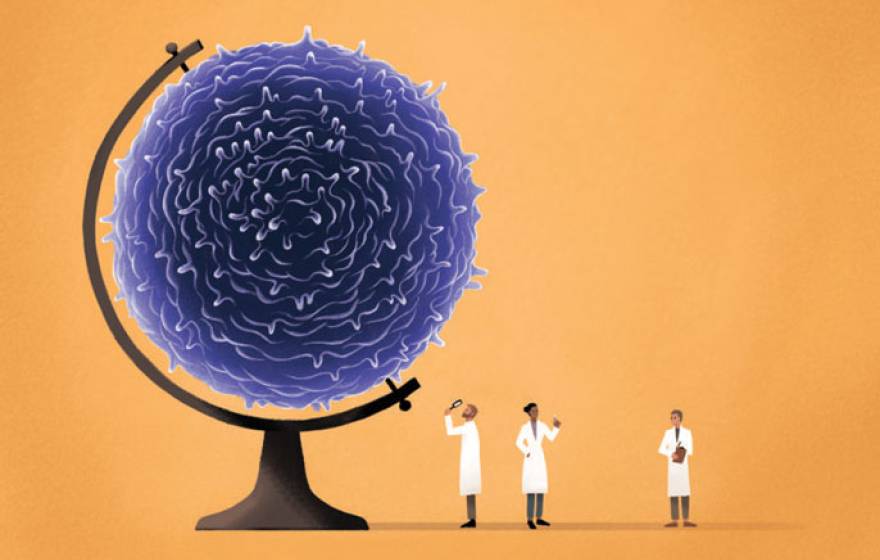Therapy dogs can help reduce symptoms in children with attention-deficit/hyperactivity disorder.
ADHD: Could dogs be the answer?
Breakthrough device translates brain activity into speech
It could one day restore the voices of those who have lost the ability to speak due to neurological damage.
Redefining the world of cancer
New grants and studies give researchers at UC Irvine the chance to make a profound difference.
Medicaid could save $2.6 billion within a year if just 1 percent of recipients quit smoking
The median state would save an estimated $25M in Medicaid expenditures, says UCSF research.
Opioid addiction treatments exist, but too few people are able to prescribe them
States should reform their regulations to allow nurse practitioners to address the opioid crisis, researchers say.
Air pollution impacts childhood development, study shows
Children who live near major roads are at higher risk for developmental delays because of traffic-related pollutants.
Researcher finds dangerous levels of metals in liquor sold in Uganda
UCLA Extension’s Ochan Otim found traces of arsenic, chromium and lead in the spirits.
A new treatment for kidney stones
A shock wave device used by UC Irvine urologists could be a gamechanger for treating painful kidney deposits.
Skin repair reduces ‘inflamm-aging’ factors linked to chronic disease
In a pilot study, treatment with a reparative skin cream lowered cytokine levels which are linked to Alzheimer's and more.
Can short-term stress make the body and mind more resilient?
A new UCSF study is testing a theory about how much stress is good for us.
Regaining sight
Blind mice regain sight with a simple gene therapy that could be available to humans in three years.
Dragging? Blame the ‘time pollution’ of springing forward
The body doesn't take kindly to time change.











